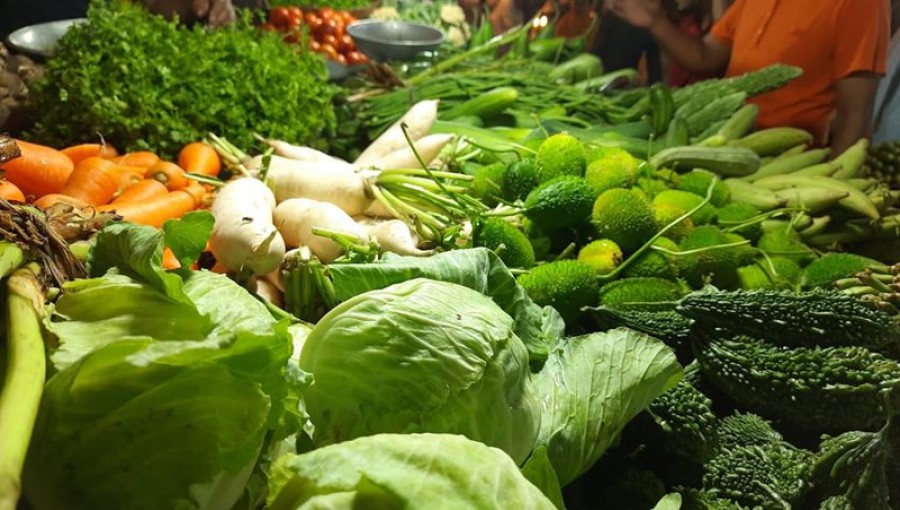Sylhet, Oct 05 (V7N)- As winter approaches, seasonal vegetables have begun to appear in the markets of Sylhet. Popular vegetables like beans, cauliflower, cabbage, and radishes are now available, but steep prices are preventing many middle- and lower-class buyers from purchasing them. Despite a higher interest in fresh vegetables, ongoing high prices due to weather disruptions have put a strain on household budgets.
A visit to various markets in the city revealed that beans are being sold for Tk 200-250 per kg , cauliflower for Tk 80-90 , and cabbage for Tk 70-80 . According to vendors, the prices are higher than usual due to continuous rain, which has damaged crops and reduced supply.
Along with beans, cauliflower, and cabbage, other winter vegetables like radish , eggplant , shrimp , bitter gourd , tomatoes , carrots , and cucumbers have also made their way to the market. However, the high prices across the board have made it difficult for shoppers to get relief.
Based on market prices, most vegetables are selling for Tk 60-100 per kg. For example:
- Cauliflower : Tk 70-80
- Sweet potato : Tk 60-70
- Bitter gourd : Tk 80-90
- Brinjal : Tk 70-80
- Radish : Tk 60-70
- Carrots : Tk 100-130
- Cucumbers : Tk 80-90 (domestic), Tk 60-70 (hybrid)
Non-vegetable essentials like onions, garlic, ginger, and dried chilies are also seeing inflated prices. Domestic onions are priced at Tk 100-110 , while ginger is selling for as much as Tk 250-300 per kg.
Speaking to Voice7 News, Ashiqul Islam , a resident of Laldighi, expressed frustration over the price hikes. "The cost of almost all vegetables is above Tk 50-60. If it continues like this, how can we find relief? Even buying two or three types of vegetables costs over Tk 150. Low-income people like us are struggling."
Arif Ahmad , a university student, also shared his concerns, saying, "As bachelor students, it's very hard to cope with these prices. Earlier, I could eat well for Tk 50-60, but now even after cutting back, I can't get below Tk 100 a meal. Our income hasn't increased, yet everything is getting more expensive."
Despite hopes that the new government would control market prices and curb syndicates' influence, many consumers feel that the situation remains unchanged. With the current trends in the market, many fear that the upcoming winter months will continue to strain household budgets.
END/SC/AJ

























Comment: